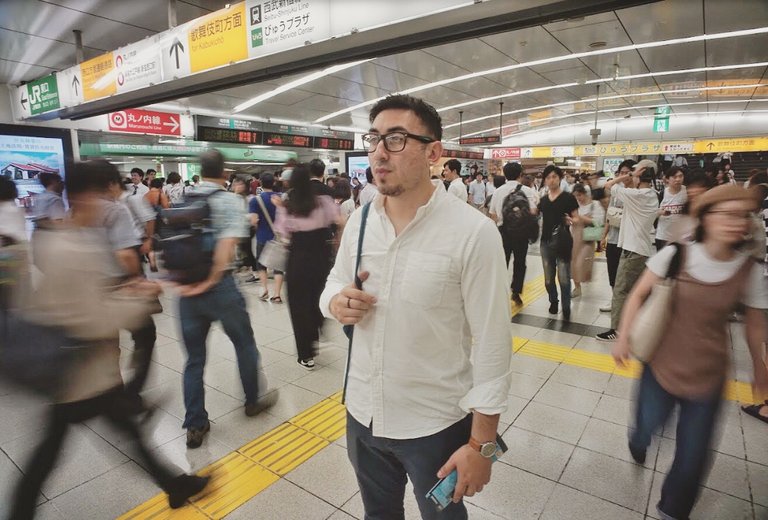My first pro tip I want to share with my fellow travelors. First Japan is actually amazing for its transportation all over the country via trains! There are at least a dozen different kinds of trains you can take; local trains, express, semi express, rapid, bullet trains to name a few.
It is super intimitating due to the massive size of these stations in Tokyo and the language barrier.
But the Japanese people and their culture, for them it is second nautre to care and respect others and be aware of their surroundings.
If you just make sure to walk up to any information booth at the stations (there are many in every station especially in the big cities) with your basic Japanese:
suimasen (excuse me), dokode (where) then name the station you want to go to for example kichijoji station. They will point and tell you which platform with their hands like for example a 6 which they use one hand five handshape and other hand with an index finger touching the palm of the five handshape.
If you know ASL, it is same sign as candle. ;)
You are on your way.
Side note -Americans cannot rent a car or moped out here because our licence is not a federal licence. Definately puts a damper on any road trips you may have been planning but then again their train systems are awesome, clean, quite, air conditioned, ALWAYS on time, and you can take a set an alarm and take a nap, its totally normal!
Some trains inside have monitors translated in english, older trains don’t but have the station name at least translated to roman letters so you can identify the station.
There are signs in various languages mostly English, Chinese and Korean in the touristy places once you get out of the stations to help the mass groups of tourists get to to where we want to be. Its been a breeze to get from one place to another. 🍃
The biggest thing that stops tourists and me at first when I get nervous. . . Asking for help. So don’t be afraid to reach out, they will stop and help you if you have the basic Japanese down.
Phrases I have been using!
Arigato goziemas! (Thank you so much!)
Suimasen (excuse me)
Oh susu mei (what do you reccomend?)
Hai (yes)
Ne (no)
Ichi, ne, san (sounds like “ichy nissan”) which is translated one, two, three. Typically, I sign it to them, they sign back using universal signs for 1-5. It works! :)
Dokode (where?)
Ehgo Hanasu? (Do you speak english?)
This last one doesn’t help much when they say no. More often than not, most say no. Although teens and children are much more receptive and excited to help out. That has been fun! They are the ones showing you the apps they use in their country and practicing their English to tell us where we need to go.
More to come!
